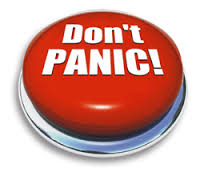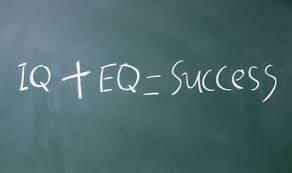If you don’t know what point you’re trying to make, neither will anyone else. In this brief video, Bob talks about how to get to your point across.
It’s the age-old debate: Just how important is IQ? According to @GaryVee, EQ Trumps IQ every time! Watch this quick video. After it’s done, if you’d like a complimentary, backed by science assessment that will help you know yourself better, just click on the “go” button. Here’s Gary Vaynerchuk.
There’s no need to deify people or to demonize them. No one is that good and few are that bad. Just a quick thought…
Just because I disagree with you doesn't mean I am anti-you. #Truth #Rational
— Bob Sands (@BobSands) January 28, 2017
Changing the questions you ask yourself can change your life. Bob talks more about it in this brief video. Watch and share!
Recently, I heard Gary Vaynerchuck (@garyvee) say something profound. He said, “Self-awareness is the game.” He’s right. The problem is that I wasted a lot of time realizing it! What is it about us as people that don’t like to admit our weaknesses? Are we afraid people won’t like us or accept us? Do we somehow just think that if we keep faking it we will someday, make it? Why do we feel like we must hide our true selves in the first place? That’s another posting to be sure, the point of this one is that we do it and we need to stop.
Lack of self-awareness is killing our relationships, our business, our careers and the organizations to which we belong. It’s so all pervasive it has reached into the hallowed halls of government.
It’s all about knowing who you are and it’s a major prerequisite for you to do what you want and need to do in life. Knowing who you are means knowing your strengths and knowing your weaknesses. It’s about knowing where your particular blind spots are. You know the ones that get you in trouble and often repeatedly?
You might be thinking, “Well, what about my weaknesses?” Most times, the older you get the less important they become. It’s true that there are some weakness that you can’t ignore and must improve upon. But those that aren’t an absolute necessity for you to get where you need to go? Just ignore those and play to your strengths.
Self-awareness is only one of five dimensions of emotional intelligence but it is the most telling and the most important. If you aren’t honest about who you are, it will be difficult to map out a plan to get where you need to go.
It’s like using a GPS. It determines your current location before it gives you several routing options to help you get to your destination. Life is like that too. Self-awareness is your GPS.
Self-awareness is the ability to recognize and understand your moods, emotions, and drives as well as their effect on others. I would also add to it that self-awareness is knowing your weaknesses and your strengths, it’s knowing what motivates you and what demotivates you, it’s knowing your personality. It’s more than just your emotions, it’s knowing your whole self. Lack of it may be the missing link (along with self-regulation) may be the missing link when it comes to long-term change.
So how do you become more self-aware?
1. Ask – Ask someone close to you like a spouse or a good friend. Tell them it’s okay that you want the unvarnished truth about some things that may be blind spots in your life. You may get some strange looks. When they finally break and tell you, it’s real important that you NOT get defensive or angry. The fact that they care enough to tell you and you are taken by surprise is a sure sign that more self-awareness is a necessity. Welcome it, you’ll find a new sense of freedom.
2. Associate – Associate with others who are self-aware. How will you know? They will be the people that focus on their strengths and freely admit their weaknesses. They probably get angry but wouldn’t be called an “angry person.” When they fail? They don’t beat themselves up too long but they get back up and try another way. Remember that you become like the people that you’re around so choose wisely when it comes to your associations.
3. Assess – Take an assessment. I didn’t say a test. There are many types of assessments on the market that will identify your behavioral tendencies, your motivators and even your EQ (Emotional Quotient). Since you have read this far, I would like to offer you one of these assessments free of charge ($100.00 value). You can take that assessment here.
Beyond all of this, begin every day with a self-evaluation. How’d you do yesterday? What do you need to do differently today? Be painfully self-aware of your strengths and weaknesses, Remember, if you don’t know who you are then you won’t be able to get where you need to go.

On December 30th, 2016, my Son and I decided to watch UFC (Ultimate Fighting Championship) 207. It wasn’t billed as just another UFC Pay-per-view. This one would pit a returning former champion, Ronda Rousey against current champion, Amanda Nunez.
The hype preceding the fight was somewhat muted on Rousey’s part. She did very little press and stayed relatively quiet. This would be her return to the ring after losing her title over a year before to Holly Holm who also handed her the first defeat of her UFC career. After Holm took her title,
Rousey admittedly dealt with depression and staved off thoughts of suicide. So, this would be her comeback. Odds were in her favor in the minds of many and especially, those in Vegas!
Most watching thought Ronda would be back to her old self. When she entered the ring, she did so in the best shape of her life and with an intensity to match. But a successful return was thwarted and all too quickly. Rousey was defeated in a mere 48 seconds after being pounded by the champion. My son and I looked at each other stunned. How does a former champion who put the Women’s division of the UFC on the map fall so hard and so quick?
The memes started immediately and the Internet was abuzz blaming everyone from her coach to the fighter herself. Some predicted her retirement while others encouraged her to return. For her part, Rousey has only said that she is taking some time to evaluate what’s next.
Here’s the caveat: Rousey earned $3 Million for getting beat in 48 seconds while the Champion, Amanda Nunez earned right at $100,000.00. You read that right. Rousey earned about $2.9 Million more than the Champion — and she lost the fight—in 48 seconds. By my calculations, Rousey earned a whopping $62,500.00 per second!
How does that happen? Ronda Rousey is a brand all by herself. Think what you want and say what you will but the value that she has brought to UFC is far beyond what she earned in this fight or all the others combined. She is the first woman to ever sign a contract with the UFC and that division was built on her shoulders.
How many times has that happened to you? It seems like you win, win, win and are on top of your game. Then, suddenly, no matter what you do you can’t hit that level of success you once had? Maybe you feel has if you have never really “won” and all you do is move from failure to failure. Regardless of where you are, like Rousey, you can bounce back. Don’t let your losses define you. Rather let them drive you to embrace your destiny. Here’s how to come back when you have been defeated.
First, Evaluate. Rousey is doing that now and doing it the right way. That takes time. Usually, after a loss, we are emotional and often irrational. That’s not the time to make any life altering decisions. Let the initial shock and emotion to wear off first then begin an honest to goodness evaluation of what you did right and wrong. Write it all down and don’t hold back.
Second, Enlist. You can’t bounce back alone. You need a team that will surround you. Like an MMA fighter, you need a coach and a corner person. You need someone who can give you the strategies and someone else who will keep pumping you up. Find a counselor, coach, mastermind group or even club that can provide both accountability and affirmation.
Third, Envision. Come up with a plan and utilize your team to help you do it. Another fighter, Mike Tyson is credited with saying, “Everyone has a plan until they get punched in the mouth.” He’s right. Plans will change and they should be flexible as things won’t always go the way you mapped out. That’s all the more reason to not just have a plan, but also multiple approaches to getting back on top again.
Finally, Execute. All the teamwork, plans, and processes known to man won’t work if you don’t take action. Far too many wait for the New Year, the new book, the new course or a new path. Start. Move. Adjust. Progress. Keep moving in the direction of your plan.
If you feel like you’ve failed, you’re stuck or you just need to start over, then begin where you are. Garner the help you need, draw up a road map and get to work. The possibilities are endless.

Everyone has a crisis at one time or another. It could be as simple as something or someone went missing for a short time to a major earthquake followed by a tsunami. Whatever it is when a crisis happens a marriage, relationship, business or city or country will never be the same. Thus how one approach a crisis makes the difference between survival and significance.
I’ve spent the better part of my life dealing with people in crisis. I’ve officiated at the funerals, held people as they passed from this life into the next and been on the scene just after suicides. I’ve counseled the families and been there for emergencies. Over the years I’ve learned there are many “crisis management” techniques or strategies that need to be deployed and applied. I’ve also learned that if I have the principles right, I will figure out how to get where I need to go. Here are a few crisis management principles that I have learned on the anvil of life.
Principle #1 is Perspective. It’s imperative to get the right perspective on the crisis as soon as possible. When a sudden shift occurs our adrenaline begins pumping faster and our perspective often becomes skewed. Most times, things aren’t as bad as you first think. When you are in the crisis, things seem to either speed up or slow down. In other words, there is a distortion of time. That’s why it’s important to have a team of people who can help you keep perspective so you will neither overreact or underreact.
Principle #2 is Purpose. What’s your main focus in the crisis? If your first answer is to save you or your brand’s good name you are already in trouble! Do you remember when Disney World (AKA The Happiest Place on Earth) has been rocked by an alligator attack in which a two-year-old child tragically lost his life? After the fact, reports surfaced that Disney constantly removes alligators from their various lagoons-→but didn’t have any warning signs. After all, who would assume that the happiest place on earth would allow dangerous alligators to roam their lagoons? Safe question, isn’t it? Disney (finally!) moved into correct it. But more could have been done. Perhaps an apology for their lack of concern? Maybe a renewed commitment to the safety of its patrons? There’s so much. When the crisis comes, keep your purpose in mind. And it better be one in which you look at others before yourself or your organization.
Principle #3 is Process. Know your process for handling a crisis BEFORE it happens and write it down! Remember what we said about time distortion? A written plan with clearly delineated steps will help to make sure you are doing everything that needs to be done without over or under reacting. Trying to establish a process in the middle of a crisis is like trying to put up shutters in the middle of a Category 4 hurricane – it’s too late. Determine the Who, What, When, Where, Why & How. Write it down and make sure every person that will be involved or needs to be involved gets a copy. More importantly, make sure they follow it when the time comes. It’s imperative for everyone to be on the same page. Can you anticipate every issue in advance? No, but you can move in the right direction and that’s a good start.
Crises will happen in your business, organization, and your life. They are unavoidable. The best way to tackle them is to decide what you will do before they ever happen.
Political conventions for those of us who are in the Communications field are like the Olympics for sports enthusiasts! And no matter what your political affiliation or bent, there is something to learn from many of the speakers.
At the time of writing, we are only one day into the DNC convention. While it started out a bit raucous, one person rocked the first evening and perhaps will go down as the most memorable speaker. That speaker was First Lady, Michelle Obama. Her speech was a study in “how it’s done.” From the moment she walked onto the stage to the moment she exited, she got her message across with poise and professionalism. No doubt, she like Ivanka Trump last week, was the star of the evening and may have been the cornerstone for the remainder of the convention.
There are a lot of takeaways for anyone that is a speaker or speechwriter from her talk. There are three lessons that stand out above all the rest.
Lesson #1, make your speech memorable. This speech was one for the record books from the moment she opened her mouth. In classic (and a classy) manner, she outlined the problems of where we still are today by stating some of the obstacles that she and the President have faced over the past eight years. While you may disagree with the statements, one cannot disagree with how she made them.
Your listeners are bombarded with thousands of messages on a daily basis. And that makes being memorable a challenge. One thing that her speechwriter(s) did well was pepper the speech with personal anecdotes. Her 15-minute speech was replete with picturesque stories that got her point across in a memorable way.
How can you make your speech memorable like Michelle’s?
Tell stories. As Pastor and Author Rick Warren says, “Never make a point without a picture.” People may not remember your points but they will remember the stories and how those stories made them feel. People remember stories and our brains are wired for them.
Lesson #2, make your speech personal. Stories also help you connect at a deep, personal level with your audience, two illustrate this lesson.
She talked about that first day her daughters went to school after moving into the White House. She recounted them getting into the “big black SUV’s” “accompanied by big men with big guns.” She remembered how their faces were pressed up against the glass as they waved goodbye and she thought to herself “what have we done!” She identified with us as human beings because we have all been there and asked ourselves that question, “What have I done?”
A second powerful moment that made it personal was when she made the statement “Every day I wake up in a house that was built by slaves.” Because her husband is the first African-American president and she the first African-American First Lady, this was personal and poignant. A little fact check reveals that there were indeed slaves owned by certain Americans that were paid a wage to help build the White House.
Connecting your speech in personal ways allows your audience to empathize with you and you with them. Get to know your audience and remember that your message is to a person, not a crowd.
Lesson #3, make your speech graceful. Mrs. Obama’s body language was open, she smiled throughout was never shrill and refrained from personal attacks. As a matter of fact, one line will go down in history. While one may argue its merits from a political perspective, it will never be forgotten. No doubt she was seeking to combat the personal attacks against her husband regarding his birthplace, faith, and even patriotism. And her comeback to those attacks was the rock from which legends are hewn. She told her daughters, “When they go low, we go high!”
Sure there are times when the occasion calls for one to speak bluntly and forthrightly but it’s not every time. Taking the high road in one’s speech while contrasting yourself with another is both art and skill, and the First Lady did all three. She exhibited grace under pressure and stayed focused on her message.
No matter which side of the aisle you come from, this is a speech for the ages and one from which all of us can learn.
 I can’t believe I’m caught up in this whole thing. I feel like I have become one of those people that others talk about. You know, “Did you hear what Bob is doing?”
I can’t believe I’m caught up in this whole thing. I feel like I have become one of those people that others talk about. You know, “Did you hear what Bob is doing?”
I will tell you how it started. My wife was observing some type of a shore bird building a nest on our lake about 15 ft. from shore. I paid little attention to it at first until the mama bird laid eggs, and a storm came.
The wake that the storm created caused the nest to be shaken a bit…along with the Mama bird and her mate. Feverishly they worked to add to the nest so it wouldn’t be torn apart in the storm and sink. They worked hard to find additional materials to “shore” up the nest. That’s when it started.
Our family started gathering twigs, roots, anything that they could build with and placed them along the bank. We hoped that in some small way we could contribute to the nest and the safety of the eggs. When I woke up the next morning, what did I do? You guessed it, I got the binoculars to see how things were going. Much to my surprise and satisfaction, much of what we had left along the shoreline had been used to strengthen the nest. All was well with mama bird and her soon to be baby birds.
I’m not usually that person. I’m normally the guy who says, “let nature take its course. The birds know what they are doing, they don’t need my help.” But then it dawned on both my wife and me why this sudden interest in helping mama bird keep her nest safe and secure? It’s simple – in two months our nest will be empty. And it’s far more difficult than we ever imagined.
These past few weeks have been a flurry of activity with our youngest. There was prom, graduation and the graduation party. Add to it our wedding anniversary and, in just a few weeks, milestone birthdays for both of our kids. Less than a month after that? The oldest goes back to college and the youngest launches her college career. On top of it, she’s my little girl!
I think the problem is I’m losing control. I will no longer know what either of them is doing every waking moment. I’ll wonder how here classes are going, if she’s healthy and if she is safe (since I’m not there!). Oh, make no mistake, I wondered the same when it came to my son.
I think the bird’s nest in our lake is a symbol of our nest. We have kept them safe from the storm, shored up their home and watched them hatch. Now it’s time for them to fly! To soar on their own and find their own way. And it scares me. But I know that as they fly we have given them a sense of direction and principles to keep them safe.
Pretty soon that mom in the nest in our lake will do the same. The eggs will hatch, the birds will learn to fly and one day they will leave the nest to find their own way. In the not too distant future, I will look out for the nest in the lake and will see it is empty. But I’ll know that we had a part in keeping them safe so one day they could fly. And fly they will.



